A PLUME BOOK
BOSS
MIKE ROYKO was a nationally syndicated columnist for the Chicago Tribune. His other books include Like I Was Saying and Sez Who? Sez Me.
Theres nobody better than Mike Royko writing politics.
Russell Baker, The New York Times
The best book ever written about an American city, by the best journalist of his time. Perhaps it will stand as the best book ever written about the American condition at this time. It comes at you from the saloons and neighborhoods, the police stations and political backrooms. It is about lies and viciousness, about the worship of cement and the hatred toward blacks, about troubling cowardice that hides behind religion and patriotism while the poor get clubbed and killed.... Roykos book also does more written damage to a man than perhaps anything I have ever read.... I know of no place where it will not be read and quoted and kept and read again.
Jimmy Breslin
A pungent and precise portrait of how big-city politics work. And it is brisk and lively reading in the bargain.... Muckraking at its best, a remorseless book that bites and tears.
Christopher Lehmann-Haupt, The New York Times
BOSS

Richard J. Daley
of Chicago
MIKE ROYKO

PLUME
Published by the Penguin Group
Penguin Group (USA), 375 Hudson Street,
New York, New York 10014, USA

USA | Canada | UK | Ireland | Australia | New Zealand | India | South Africa | China
Penguin Books Ltd., Registered Offices: 80 Strand, London WC2R 0RL, England
For more information about the Penguin Group visit penguin.com.
First published in the United States of America by E. P. Dutton & Co., Inc., 1971
 REGISTERED TRADEMARKMARCA REGISTRADA
REGISTERED TRADEMARKMARCA REGISTRADA
Copyright 1971 by Mike Royko
Introduction copyright 1976 by Mike Royko
All rights reserved. No part of this product may be reproduced, scanned, or distributed in any printed or electronic form without permission. Please do not participate in or encourage piracy of copyrighted materials in violation of the authors rights. Purchase only authorized editions.
originally appeared in Playboy magazine.
LIBRARY OF CONGRESS CATALOGING-IN-PUBLICATION DATA
Royko, Mike, 1933
Boss : Richard J. Daley of Chicago.
1. Daley, Richard J., 19021976. 2. Chicago
(Ill.)Politics and government1951
3. MayorsIllinoisChicagoBiography.
I. Title.
F548.54.D34K68 1988 977.3J1040924 88-22495
ISBN: 978-1-101-66058-4
Version_1
For Dave and Rob
and all the Sundays missed.
Acknowledgments
I am grateful for the help of many knowledgeable Chicagoans in putting this book together. To demonstrate my gratitude I wont name them, so they can unpack and stay in town. My thanks to Studs Terkel for talking me into it; Saul Alinsky for being around and gutsy; Leslie Q. Lubash, Howie Ziff, Stanley Koven, Nelson Algren, Al Kramer, Monsignor John Egan, Tony Scariano, and Len Despres for being living reminders that everybody here wasnt born with a golden nightstick between their teeth; and Roy Fisher, a good and kind boss.
Introduction
I f a man ever reflected a city, it was Richard J. Daley and Chicago.
In some ways, he was this town at its beststrong, hard-driving, working feverishly, pushing, building, driven by ambitions so big they seemed Texas-boastful.
In other ways, he was this city at its worstarrogant, crude, conniving, ruthless, suspicious, intolerant.
He wasnt graceful, suave, witty, or smooth. But, then, this is not Paris or San Francisco.
He was raucous, sentimental, hot-tempered, practical, simple, devious, big, and powerful. This is, after all, Chicago.
Sometimes the very same Daley performance would be seen as both outrageous and heroic. It depended on whom you asked for an opinion.
For example, when he stood on the Democratic National Convention floor in 1968 and mouthed furious crudities at smooth Abe Ribicoff, tens of millions of TV viewers were shocked.
But it didnt offend most Chicagoans. Thats part of the Chicago stylebelly to belly, scowl to scowl, and may the toughest or loudest man win.
Daley was not an articulate man, most English teachers would agree. People from other parts of the country sometimes marveled that a politician who fractured the language so thoroughly could be taken so seriously.
Well, Chicago is not an articulate town, Saul Bellow notwithstanding. Maybe its because so many of us arent that far removed from parents and grandparents who knew only bits and pieces of the language.
So when Daley slid sideways into a sentence, or didnt exit from the same paragraph he entered, it amused us. But it didnt sound that different than the way most of us talk.
Besides, he got his point across, one way or another, and usually in Chicago style. When he thought critics should mind their own business about the way he handed out insurance business to his sons, he tried to think of a way to say they should kiss his bottom. He found a way. He said it. We understood it. What more can one ask of the language?
Daley was a product of the neighborhoods and he reflected it in many good waysloyalty to the family, neighbors, old buddies, the corner grocer. You do something for someone, they do something for you. If somebody is sick, you offer the family help. If someone dies, you go to the wake and try to lend comfort. The young dont lip off to the old; everybody cuts his grass, takes care of his property. And dont play your TV too loud.
Thats the way he liked to live, and thats what he thought most people wanted, and he was right.
But there are other sides to Chicago neighborhoodssuspicion of outsiders, intolerance toward the unconventional, bigotry, and bullying.
That was Daley, too. As he proved over and over again, he didnt trust outsiders, whether they were long-hairs against war, black preachers against segregation, reformers against his machine, or community groups against his policies. This was his neighborhood-ward-city-county, and nobody could come in and make noise. Hed call the cops. Which he did.
There are those who believed Daley could have risen beyond politics to statesmanship had he embraced the idealistic causes of the 1960s rather than obstructing them. Had he used his unique power to lead us toward brotherhood and understanding, they say, he would have achieved greatness.
Sure he would have. But to have expected that response from Daley was as realistic as asking Cragin, Bridgeport, Marquette Park, or any other Chicago neighborhood to celebrate Brotherhood Week by having Jeff Fort to dinner. If Daley was reactionary and stubborn, he was in perfect harmony with his town.
Daley was a pious manfaithful to his church, a believer in the Fourth of July, apple pie, motherhood, baseball, the Boy Scouts, the flag, sitting down to dinner with the family, and deeply offended by public displays of immorality.
And, for all the swinging new life-styles, that is still basically Chicago. Maybe New York will let porn and massage houses spread like fast-food franchises, and maybe San Francisco will welcome gay cops. But Chicago is still a square town. So City Hall made sure our carnal vices were kept to a public minimum. If old laws didnt work, they got new laws that did.

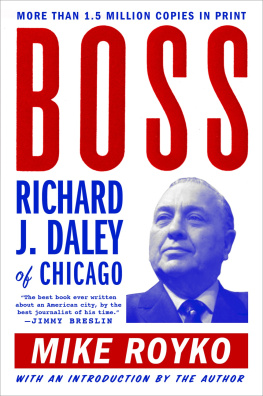
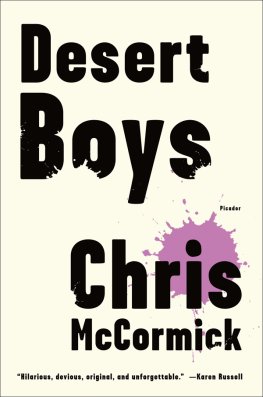

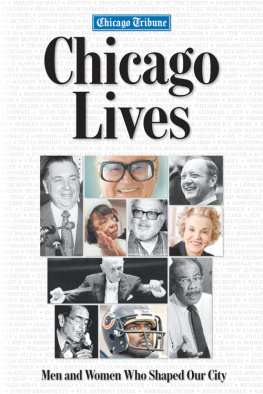

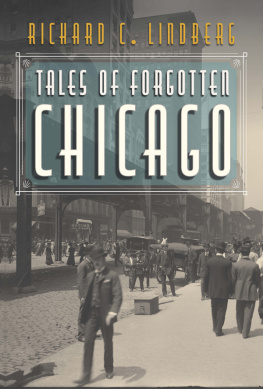



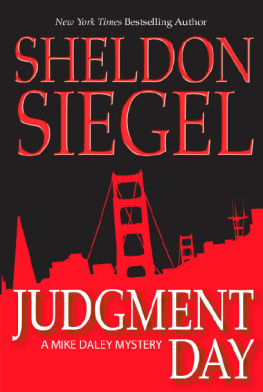




 REGISTERED TRADEMARKMARCA REGISTRADA
REGISTERED TRADEMARKMARCA REGISTRADA